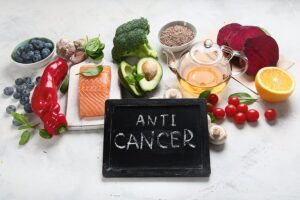Why Are So Many Young People Getting Cancer?
Statistics from around the world are clear: the rates of more than a dozen cancers are increasing among adults under age 50. The number of deaths from early-onset cancer globally has risen by nearly 28% between 1990 and 2019. And researchers predict that the number of early-onset cancer cases will increase by around 30% between 2019 and 2030.
This new trend has caught medical professionals around the world off guard. No one saw this coming. Cancer has always been an old person’s disease. That’s not the case anymore.
In the US, colorectal cancer—which typically affects men in their mid-60s or older—has become the leading cause of cancer death in men under 50. In young women, it has become the second leading cause of cancer death.

The study published in the British Medical Journal last September also cited an increase in the number of advanced cases being diagnosed. This is particularly concerning because colonoscopies are a great tool for prevention and early detection of colorectal cancer. Most screenings are able to detect and remove precancerous legions. The fact that 27% of younger adults are diagnosed with advanced cases compared to 20% of older adults is concerning, especially when you realize survival rates are 90% if detected early enough.
Because we’re not used to seeing colorectal cancer in younger adults, those who report to their doctor with blood in their stool often get diagnosed with irritable bowel syndrome. This misdiagnosis is one of the reasons we see more advanced cases in younger people.
The U.S. Preventative Services Task Force changed its recommendation in May 2021 to begin screening at age 45 instead of 50, but those with risk factors may need to start earlier. Nearly a third of colorectal cancers are associated with a family history of disease.
A paper published in Science in March suggests there could be a number of possible reasons more younger people are getting colorectal cancer, including environmental and genetic factors.
Excess body weight increases the risk of colorectal cancer, but only 5% of colorectal cancers are attributed to excess body weight. Excess weight is predominantly associated with tumors on the right side of the colon, not the left, which is where the cancer society found the increases are occurring.
Marios Giannakis, coauthor of the Science paper, notes higher consumption of sugar-sweetened beverages, as well as red and processed meats are possible factors. Others include antibiotics, environmental toxins, and higher rates of C-sections and other surgical procedures.
What all those factors have in common is an effect on the gut microbiome, the population of bacteria and organisms that populate the human digestive system. Your microbiome is made up of trillions of microorganisms of thousands of different species that include not only bacteria but fungi, parasites, and viruses. In a healthy person, these “bugs” coexist peacefully, with the largest numbers found in the intestines. Each person has an entirely unique microbiome originally determined by their DNA. A person is first exposed to microorganisms as an infant in the birth canal and through mother’s breast milk. Later on, environmental exposure and diet change one’s microbiome to be either beneficial to health or place one at great risk for disease. Disruptions in the microbiome, such as those caused by dietary changes or antibiotics, have been linked to inflammation and increased risk of several diseases, including some forms of cancer.
A study published in the British Medical Journal in 2019 found an association between oral antibiotic use and increase risk of colon cancer. The risk was observed after minimal use of antibiotics and the association was found for antibiotic exposure >10 years before diagnosis.
While oral antibiotic use seems to be a good place to start when looking at what’s causing these early onset cancers, researchers seem to agree that it’s not just one thing. We must look at several risk factors when determining the best approach for education and prevention.
The New York Times points to the fact that recent generations have consumed more red meat, ultra-processed foods and sugary beverages, and have been known to binge drink more frequently; between 1992 and 1998, cigarette smoking also increased before declining again, while physical activity has continuously declined for decades. All these factors are associated with cancer risk, but none of them fully account for the increase in early-onset colorectal cancer.

Of course, red meat has always been the villain in the colon cancer saga, but that association has never been proven. If we look at animal studies, we discover a few more likely suspects. Animal studies that induce colon cancer in rodents don’t work unless the rodents’ diet is deficient in calcium. Many researchers working with rodents find they need to strip calcium from the diet before inducing colon cancer.
Another prerequisite for colon cancer appears to be high intake of polyunsaturated fats in the form of linoleic acid, the kind found in seed oils (safflower oil, corn oil, soybean oil, etc.). Once again, in animal studies that try to induce colon cancer, it’s very difficult to do so if the main fatty acids in the diet are monounsaturated (olive oil, avocado oil) or saturated (animal fats and coconut oil). There’s one study where diets of two rodent groups were identical except for the fat source: one of them was safflower oil, the other was coconut oil. It was much easier for the researchers to induce colon cancer in the safflower oil group. Another study had similar results comparing colon cancer progression in rats fed either high seed oil or high olive oil with or without adequate calcium. The study found that diets high in calcium and/or oxidation-resistant fats may prevent the possible cancer-promoting effect of red meat.
The current plant-based food movement that so many young people have adopted could very well be the problem. There’s a huge movement around swapping out milk and cheese for oat milk and cashew cheese. We’re still going down the road of replacing butter with butter substitutes. And we’re eating salads drenched with seed oil salad dressing. Most “plant based” diets are steeped in “virtue” but far from healthy.
Our ancestors (not just the ones a long time ago, but the ones a generation ago) didn’t get colon cancer at a young age. They ate meat and drank milk. They used butter and olive oil. They didn’t put tons of seed oils on their salads. And they didn’t run to the doctor for an antibiotic every time they got sick.
People in their 20s and 30s shouldn’t be getting these cancers. Heck, people in their 50s and 60s shouldn’t be getting these cancers. Stop the insanity of what’s going on with our health. Eat more fruits and vegetables.Use olive oil, avocado oil, butter and lard instead of vegetable oil, sunflower oil and soybean oil. Eat meat, but make sure it’s raised without steroids and antibiotics. Stay away from ultra-processed foods. And stop feeding your kids ultra-processed foods.
Stay Strong,
Bo Railey

